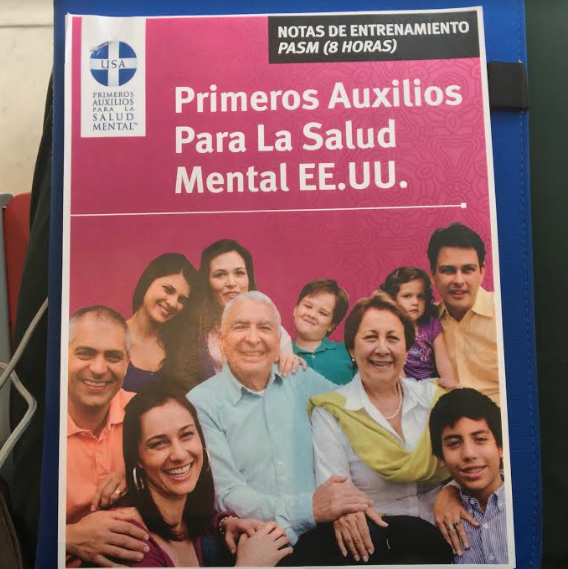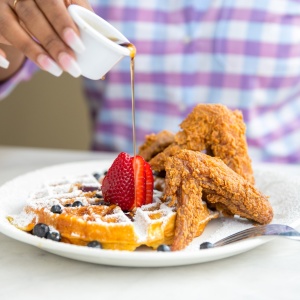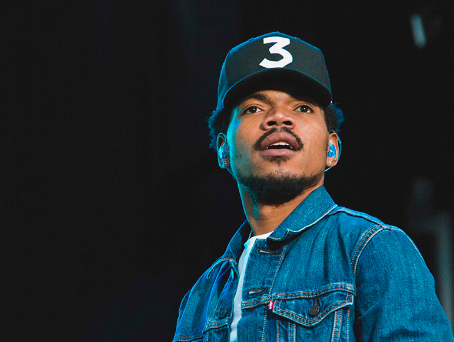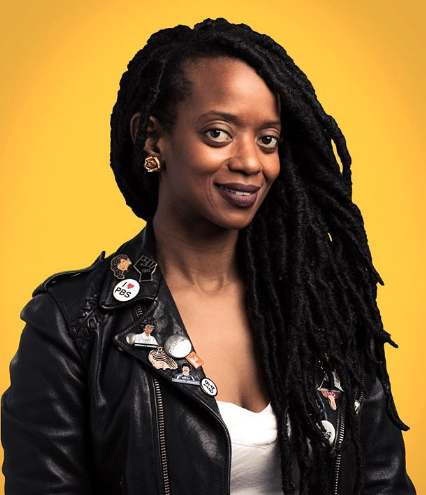Howdy, homeslice. Hopefully your stomach and spirit are full and you're soaring despite ruinous hateration in the dancerie. Welcome to another round of Mental Health Monday, your weekly dose of stories, resources, and motivation for your everyday life. On last week's edition, contributor Synitta Walker revealed her longterm battle with depression, declaring that she's not ashamed, dammit. And before that Jamond Coaston-Foree reflected on the importance of taking mental health days off from work to get you shit together. Check it out here.
THIS WEEK'S GOODNESS
"“I Slit My Wrists”: Audra McDonald On Surviving Past Suicide Attempt And What Keeps Her Strong Today" by Victoria Uwumarogie [Madame Noire]
In an interview with Alec Baldwin for his WNYC podcast, Here’s the Thing, McDonald discussed life after leaving Fresno, Calif. for New York to study classical voice at Juilliard. Her instructors wanted her to focus on singing opera and she had a different path she wanted to go on. Because of that, she struggled in her coursework and found herself battling depression. The star, in her early twenties, over her experience by her junior year and in an unhealthy relationship, was pushed to the brink.
"After Years of Daily 'Wake 'n' Bakes' I Faced My Battle with Psychological Weed Addiction" by Kitty Gray [VICE]
In recent years, the negative effects of smoking, for me, have begun to outweigh the positive. You may have heard the claim that weed makes you a wee bit stupider? Well, my memory has started to fail me. I have endless amazing story ideas when I'm high (I know, I know, every stoner makes this claim, BUT IT'S TRUE). The ideas, of course, evaporate as quickly as they materialize. My once-robust vocabulary has dwindled, and with it, my self-confidence.
"For Black Women Battling Depression: "Strong On The Outside, Dying On The Inside" [Exclusive Excerpt]" [Black Doctor]
Okay, so let’s deal with this strong Black woman thing. As Black women, we take great pride in our ability to bear the burdens of our children, families, communities and sometimes our entire race without stumbling or falling, no matter the weight that is pressed on us. After all, we endured the vicious passage from our ancestral homeland of Africa to the shores of America, the Caribbean and Europe; survived the horrors and brutality of slavery; persevered through segregation and discrimination; and achieved unprecedented economic, political and educational heights against all odds.
"I don’t need to “pray about it,” I need to go to therapy" by Maya Williams [The Tempest]
I have struggled with anxiety and depression, and I would experience it worse when people would say things like:
“It’s all in your head. God doesn’t give you more than you can handle.”
I find this very problematic because I find this statement to be bull crap. I believe God has given me a lot of things that I couldn’t handle. If I could handle it, why would I experience it in the first place? However, I do believe that God doesn’t give me anything He cannot fix. I believe He is always to fix things that I can’t.
"Gratitude Lists Are B.S. — It Was an "Ingratitude" List That Saved Me" by Liz Brown [Good Housekeeping]
For years I'd been listening to well-intentioned people who told me to be grateful for how lucky I was — to count my blessings, to make gratitude lists, to think of all of the people who had it so much worse than me, to smile though my heart was breaking, to have a better attitude. What they didn't realize was that while these practices were helpful for many people, in my case they made me ashamed to be honest about how bad I was feeling and work through that pain.
"I Love the Freelance Life, But It’s Taking a Toll on My Mental Health" by Cinnamon Janzer [NY Mag]
Considering that the gig economy is expected to double in the next four years — bringing the total of nontraditional American workers to roughly 9.2 million by 2021 — more and more people will be exposed to the work conditions that beget the mental-health issues that freelancers like these women and myself experience. How society and policymakers adapt to these changes “will be essential,” Ertel notes, for shaping a gig economy that is both productive and healthy.
Last week, Alex joined a squad of practitioners and advocates on a panel at the Human Rights Campaign in Washington, DC to close out Minority LGBTQ Mental Health Awareness Month. His section begins at about the 42 minute mark.
Would you like to tell your mental health story? Do you have a mental health-related article, video, event, or other content we should know about? Hit us up.
Are you a Black mental health professional? Do you know one? Alex is building a hub for Black wellness. Learn how you can be down.



































